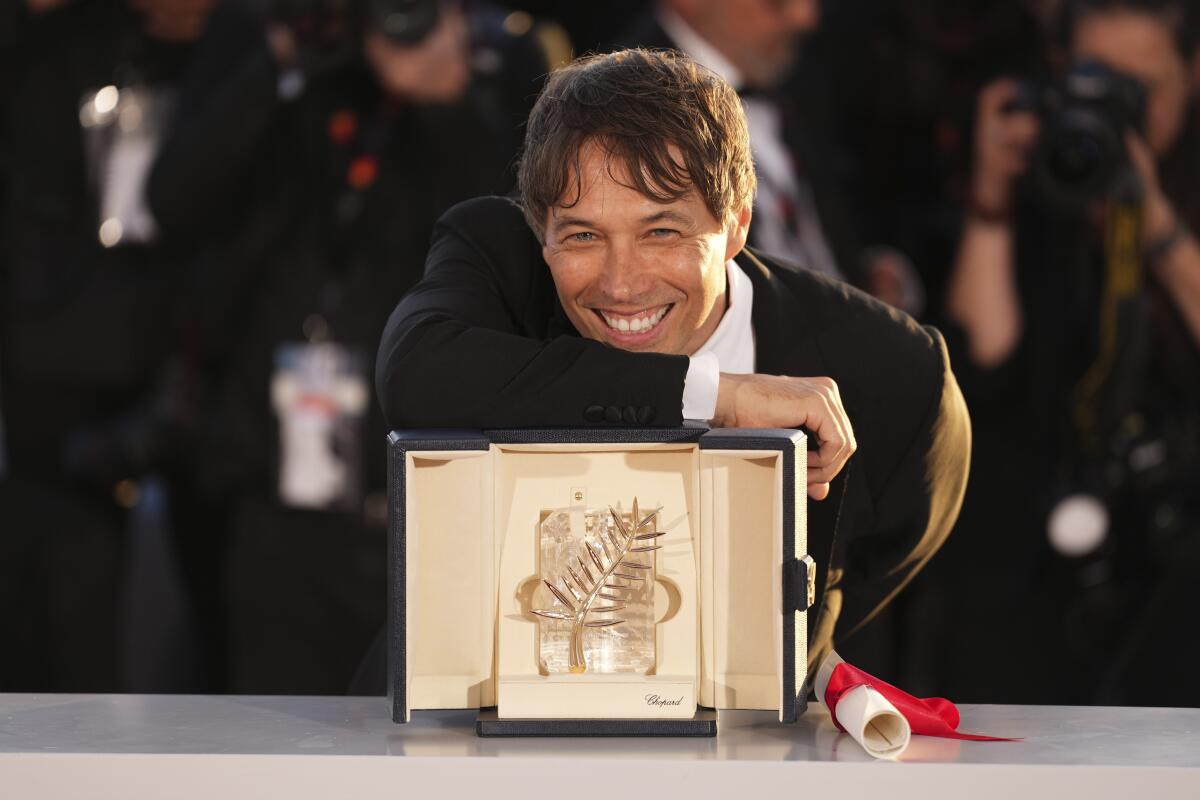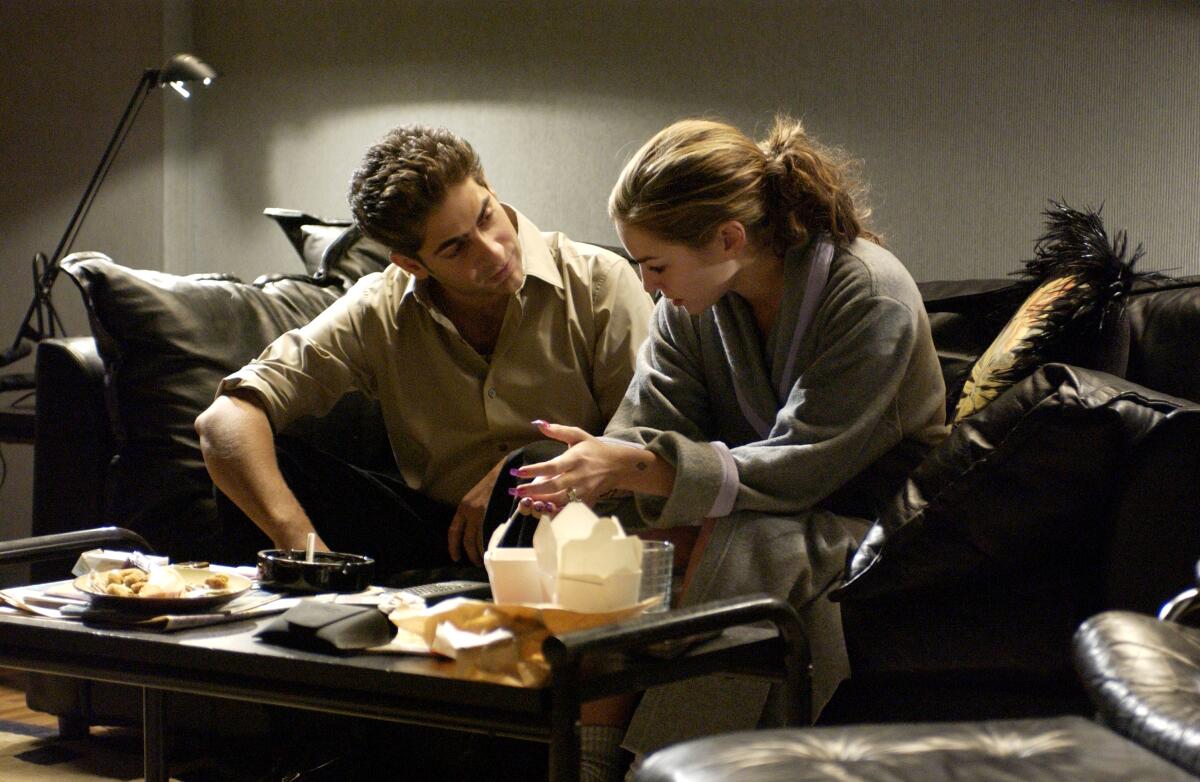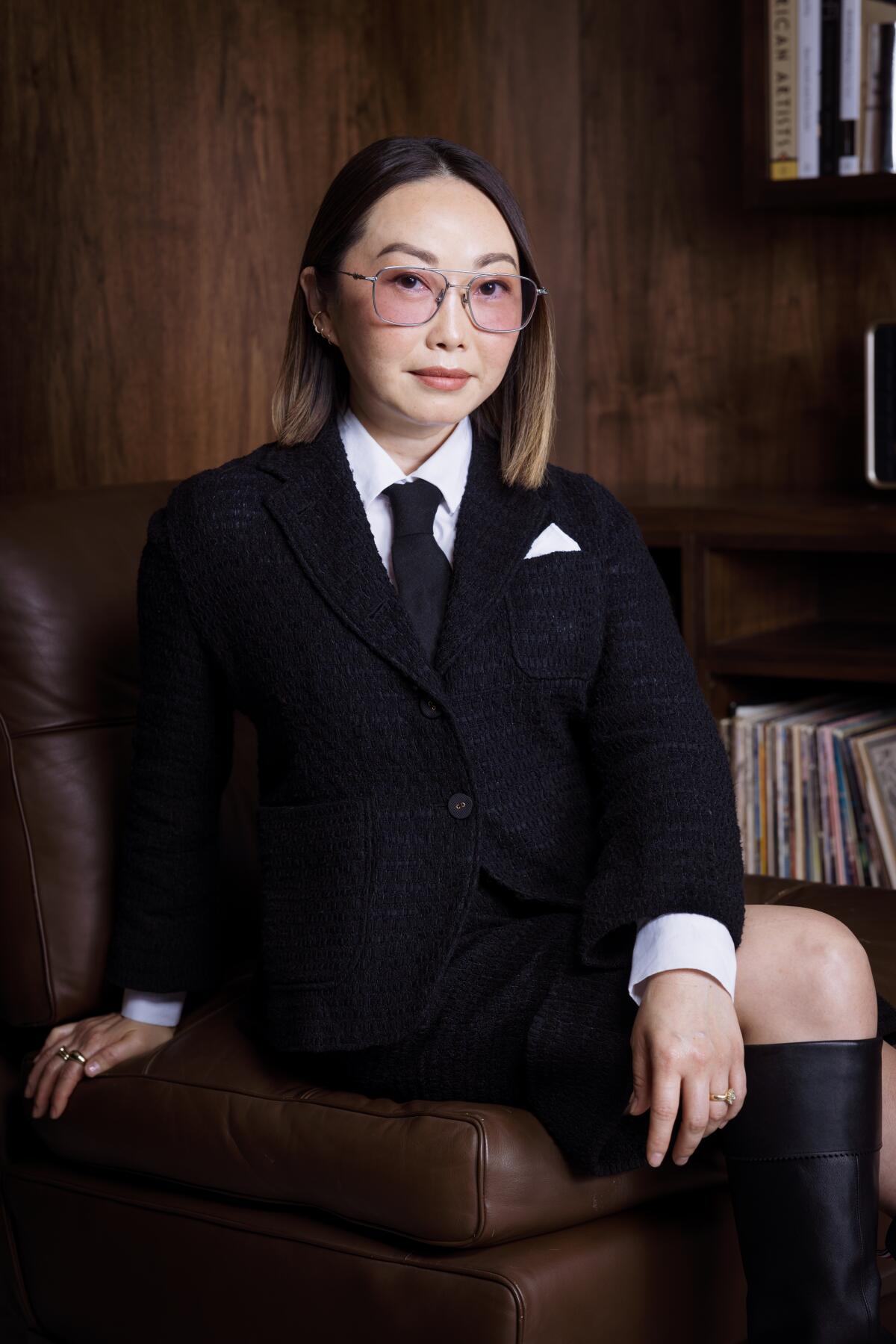It’s time to invite Sean Baker to the Oscars

You’d think hearing a single word read 34 times would get a little repetitive. And yet ...
From the Oscars to the Emmys.
Get the Envelope newsletter for exclusive awards season coverage, behind-the-scenes stories from the Envelope podcast and columnist Glenn Whipp’s must-read analysis.
You may occasionally receive promotional content from the Los Angeles Times.
I’m Glenn Whipp, columnist for the Los Angeles Times, host of The Envelope’s Friday newsletter and the guy wondering what’s more extraordinary — that a convicted felon can run for president or that a felony conviction may not stand in the way of future success. Strange days, indeed.
Sean Baker’s ‘Anora’ takes Cannes’ top prize
Several years ago, my old friend Justin Chang and I got into it a little bit when his top movie of the year, “Call Me By Your Name,” took the L.A. Film Critics’ top prize by a single vote over my favorite film, Sean Baker’s “The Florida Project,” an expansive, emotionally raw look at people living on the frayed edges of America.
“The Florida Project” managed to pick up just one Oscar nomination, for Willem Dafoe’s warm portrayal of the movie’s humane hotel manager. I had to look that up just to make sure, as I still have a hard time accepting that this brilliant, challenging movie wasn’t among that year’s best picture nominees.
Why the trip down memory lane? Well, Baker’s latest movie, “Anora,” has just won the Palme d’Or, the Cannes Film Festival’s most prestigious prize. Will that award translate into more mainstream acceptance next year at the Oscars? Maybe? Then again, “Anora” is, as my colleague Joshua Rothkopf describes it, a “knockabout comedy about a New York strip-club dancer (Mikey Madison) and her impulsive affair with a Russian oligarch’s wealthy son (Mark Eydelshteyn).”
It left the Times’ Matt Brennan “levitating,” an elevated state shared by many admirers at the film festival. And a year after Oscar voters put forward such challenging, invigorating fare as “The Zone of Interest,” “Past Lives” and “Poor Things,” I don’t think an open-hearted movie about a sex worker is outside the academy’s wheelhouse. Baker is one of the world’s most gifted filmmakers, and I can’t wait for more people to discover him through his latest work.

We still can’t get over this ‘Sopranos’ death
You know who was never convicted of a felony? Tony Soprano. But that doesn’t mean I’d vote for him for president or consider him anything more than a monster. He murdered Christopher! (Among many, many other crimes.) And before that, he ordered the hit on Christopher’s fiancée, Adriana, who, yes, was an FBI informant. But there had to be another way of dealing with her. No? What do I know? I’m not a convicted felon, either.
Whitney Friedlander did a terrific deep dive into the “Sopranos” episode “Long Term Parking,” which aired 20 years ago this week, talking with writer Terence Winter about crafting Adriana’s final chapter. And, yes, it was final, though a few people, to this day, believe that Adriana somehow escaped.
“People still wanted to convince themselves, ‘Oh, she got away.’ They still wanted the happy ending,” Winter says. “There is no happy ending here. These are horrible people.”

Looking for more in-depth coverage on all things Envelope?
Shop our collection of The Envelope magazines today.
‘Expats’ well worth a look
My pal Margy Rochlin wrote a wonderful story about the making of “Expats,” the Prime Video limited series that loosely adapted Janice Y.K. Lee’s novel about three American women living in Hong Kong. “Expats” began airing in January, but I don’t think it has found the audience it deserves. Filmmaker Lulu Wang used the novel as a starting point for a series that often shifted its focus away from privilege, exploring class and motherhood, and never offering any pat resolutions. Because ... that’s how life is, right?
Per Margy: Wang says one of the unexpected bonuses of “Expats” was realizing that she and her team were different people than when they began. “I think the idea of doing a big studio project [before] would have been really intimidating,” she says. “And now it’s not. Now it’s like, ‘OK, we see how this works.’ Regardless of the size, the scale, the number of people, we can still do what we do and bring our voice to it.”

Feedback?
I’d love to hear from you. Email me at [email protected].
Can’t get enough about awards season? Follow me at @glennwhipp on Twitter.
From the Oscars to the Emmys.
Get the Envelope newsletter for exclusive awards season coverage, behind-the-scenes stories from the Envelope podcast and columnist Glenn Whipp’s must-read analysis.
You may occasionally receive promotional content from the Los Angeles Times.




